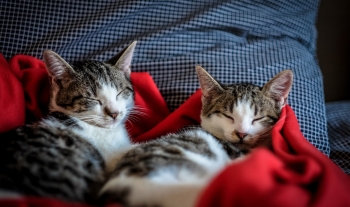Much Many A lot of 用法一次搞懂
Much, many, a lot of 這三個數量詞都翻成「許多」,到底用法上有什麼差別呢? 與名詞連用時,much只能與不可數名詞連用,many只能與可數名詞的複數型連用,a lot of/lots of 可接可數名詞或不可數名詞都可以,但在正式與非正式情境的句型上到底much, many, a lot of該如何運用是比較貼切的呢? much, many, a lot of除了與名詞連用外還有其他詞性或常用搭配詞的用法嗎? 本文將以例句及實際情境解析much many a lot of在不同情境中的用法,讓你對這三個字詞的用法能一次精準掌握。
much, many, a lot of 用法: 數量詞與例句
Much, many, a lot of/lots of 這三個數量詞都翻成「許多」,與名詞連用時,much只能與「不可數名詞」連用,many只能與「可數名詞的複數型」連用,a lot of/lots of 可接「可數名詞」或「不可數名詞」都可以,a lot of 與 lots of 意思與用法相同,我們來看下面一段日常生活中簡單的訪談對話:
>A: How much homework do you have to do every day?
你每天需要做多少作業?
B: I don’t have much homework.
我沒有很多作業。
A: How much tea or coffee do you drink every day?
B: I don’t drink much coffee or tea. I prefer to drink water.
我沒有喝很多茶或咖啡,我比較喜歡喝水。
A: How many cats do you have?
你有幾隻貓咪?
B: I have two cats.
我有兩隻貓咪。
A: How many languages can you speak?
你會講幾種語言?
B: I can speak Mandarin and English.
我會說中文和英文。
A: Do you have a lot of friends?
你有很多朋友嗎?
B: Yes, I do. I have a lot of friends.
是的,有很多朋友。
A: Do you eat a lot of vegetables or meat?
你吃很多蔬菜或肉嗎?
B: I eat a lot of vegetables, but I don’t eat much meat.
我吃很多蔬菜,但是肉我吃的不多。
A: Are there a lot of good restaurants in your community?
在你的社區有很多好餐廳嗎?
B: No, there aren’t a lot of good restaurants. If I want to eat delicious food, I usually go to Taichung.
沒有很多好餐廳,如果我想吃美食我通常會去台中。
在上述的對話中,homework, tea, coffee, meat是不可數名詞,可跟much或 a lot of 連用;cat, language, friend, vegetable, restaurant 是可數名詞,跟many 或 a lot of 連用,注意可數名詞與many, a lot of連用時是複數型喔!
如果對話情境中指稱的東西非常明確,有時候我們會把修飾的名詞省略,例如: 兩位朋友到圖書館去借書
Susan: Did you find any books you like?
你有找到你喜歡的書嗎?
Mary: Not many. How about you?
沒有很多。你呢?
Susan: I found a few books I want to borrow. They are all about psychology.
我找到一些我想借的書,他們都是關於心理學。
在上述情境中,Mary 回答Susan: Not many. 這邊的books 被省略了,因為在問句中已經講了要借的是書本,回答時就不一定要把books講出來。
又例如: 兩位室友一起吃晚餐,但Jenny比平常吃的還要少並看著食物發呆
Samantha: You haven’t eaten much.
你吃的不多。
Jenny: I have no appetite. I have to give a presentation in front of 200 people tomorrow. I’m so nervous.
我沒胃口,我明天要在兩百人面前報告我超緊張的。
這邊的情境Samantha說 You haven’t eaten much.這邊food被省略了,因為上下文很明顯之道是在說食物。
練習題: 下面是一份關於個人健康習慣的問卷,請在空格內填入much或many
1. How ______ hours of sleep do you usually get every day?
2. How _______servings of vegetables do you eat every day?
3. How _______red meat do you eat per week?
4. How _______ meals do you eat every day?
5. How _______exercise do you do every week?
6. How ______ times a day do you brush your teeth?
7. How ______hours a day do you watch TV or play video games?
8. How _______coffee or tea do you drink every day?
9. How _______glasses of water do you drink every day?
10. How _____ soda or juice do you drink every day?
答案:
6. many 7. many 8. much 9. many 10. much
much, many, a lot of 用法:正式與非正式情境
多數的學生在學習much, many, a lot of的用法時比較少去注意到這些數量詞在非正式的一般日常對話或正式的學術寫作中應用的差別,簡單地來說,日常對話中much, many 多用於問句及否定句中,基本上不會使用在肯定句中(尤其是much),肯定句若要表達「許多」的意思會使用a lot of/lots of 或其他數量詞來表達,大家可以再看一次上述的訪談對話中的幾個句子:
例句一:
問每天要做多少作業,因為homework是不可數名詞,所以用how much來問,回答說沒有很多作業,這是否定的句子,可以用much來回答。
例句二:
蔬菜vegetables是可數名詞,肉類是不可數名詞,兩者都可與a lot of/lots of 連用,答句肯定句說我吃很多蔬菜用I eat a lot of vegetables.來回答而非I eat many vegetables.是因為這是一個日常對話的情境,比較不會使用many, much於肯定句中,而是會使用 a lot of/lots of於肯定句中來表達「許多」的意思。但這當然也有例外,我們通常會使用many 而非 a lot of/lots of 來與時間詞 (如: days, minutes, months, weeks, years) 或數字[number of ~]這樣的詞語(如: thousands of houses, millions of dollars) 連用。
I used to spend many hours commuting from Changhua to Taichung.
He hit the jackpot in a game and got many millions of dollars.
在正式文體例如學術寫作中(academic writing),肯定句中作者會比較偏好使用many, much來表達「很多」的意思而非 a lot of/lots of,我們來看一段學術寫作的情境,這邊作者使用much research, many studies 來表達「很多」研究而非使用 a lot of/lots of :
Much research has been conducted on the influence of diet on health, with many studies focusing on the relationship between fat intake and heart disease. However, much remains to be done.
(本段文字出自 Advanced Grammar in Use P264)
關於飲食對健康的影響已有許多研究,有許多的專題研究是聚焦於脂肪攝取與心臟病的關聯性。儘管如此,更多的研究仍待被做。
在這段文字中much remains to be done. 這句話是原意是much research remains to be done. 句子中省略了research,因為上下文很清楚是指「研究」。
上述中我們提到a lot of=lots of 可接可數名詞或不可數名詞都可以,大家在寫句子時要特別注意是主詞來決定動詞的單複數型態而不是a lot of/lots of這個量詞喔,例如:
A lot of stray cats need food.
許多流浪貓需要食物。這句話中cats是複數,所以need不可以加s
A lot of housework needs to be done before Chinese New Year.
農曆新年之前得大掃除。這句話中housework是不可數名詞,所以即使我們說a lot of housework, 動詞必須要用第三人稱單數動詞needs而不是need.
那可能有同學會問a lot of/lots of只能用在肯定句中嗎? 會用在正式或非正式情境中呢? 基本上a lot of/lots of 是比較「非正式」的詞語, 可以使用在所有的肯定句、否定句、及問句中:
肯定句 :
否定句:
問句:
這個社區有很多公園嗎?
我們再來看一段對話將a lot of/lots of 使用於肯定句、否定句及問句中的對話:
A: Do you have a lot of free time?
你有很多空閒時間嗎?
B: No, I don’t have a lot of free time.
沒有,我沒有很多空閒時間。
A: Do you do a lot of exercise?
你做很多運動嗎?
B: Well, I try to exercise at least thirty minutes a day.
我盡可能至少一天運動三十分鐘。
A: Are there lots of books in your home?
你家有很多書嗎?
B: Yes, there are a lot of books in my bedroom because I like to read very much.
有,在我的房間有很多書因為我非常喜歡閱讀。
簡單來說,在非正式情境中a lot of/lots of是個非常好用的數量詞,因為它可以用在所有的肯定句、否定句、及問句中;而在正式情境中,通常會偏好使用much, many, a large number of, a great deal of, a large amount of 來表達「許多」的意思。
* 小提醒:
a large number of 與可數名詞複數型連用,a great deal of, a large amount of 與不可數名詞連用
例句:
Research indicates that a large number of college students are unable to get up early.
研究指出許多大學生沒辦法早起。
A report shows that most Taiwanese students spend a great deal of time studying English every day.
一份報告顯示大部分的台灣學生每天花很多時間學習英文。
A recent survey showed that the Chinese drank a large amount of tea.
最近一份調查顯示中國人喝大量的茶

much, many與so, as, too的搭配用法
雖說在非正式情境中much, many多用於疑問句與否定句中,但與so, as, too搭配連用 (so much, so many; as much, as many; too much, too many) 於肯定句中是非常常見且自然的講法,例句如下:
He has so much money that he can buy ten mansions in Taipei.
他有如此多的錢多到可以在台北買十棟豪宅。
Sue has got so many reading assignments in the last few days that she can’t possibly finish all of them by this weekend.
她在過去這幾天被指派了如此之多的閱讀功課以至於她不太可能在周末前全數完成。
A stray cat usually eats as much as he/she can.
流浪貓通常都是盡可能地吃。
I’m going to make a big cake. I need as many eggs as possible.
我將要做一個大蛋糕,我需要儘可能多的蛋。
Cathy made so many mistakes at work that she got laid off.
Cathy在工作上犯了如此多的錯誤以至於她被解雇了。
I think I’ve eaten too much. Now I feel a bit uncomfortable.
我吃太多了,現在覺得有點不太舒服。
That mother felt annoyed because the little boy asked too many questions.
那位媽媽覺得不耐煩因為那個小男孩問太多問題了。
much當副詞的用法
much這個字也可以當副詞用,大家最熟悉的「非常謝謝你!」英文就是Thank you very much. 我非常喜歡______. 英文是I like______ very much. 例如: I like your new book very much. 我非常喜歡你的新書。I like your new hat very much. 我非常喜歡你的新帽子。這邊very much就是副詞的詞性並常使用於肯定句。
much當副詞用時也可用於否定句及問句中,例如:
Most people don’t travel much nowadays because of the pandemic.
現今大部分的人不太旅行因為全球的大流行病。
Do you exercise much on weekdays?
工作日你常運動嗎?
我們也常用much來修飾比較級的形容詞及副詞,可用於肯定句、否定句及問句之中,例如:
1.Much修飾比較級形容詞
Her house is much bigger than mine.
她的房子比我的要大很多。
Learning Japanese is much more difficult than learning English.
學日文比學英文要困難許多。
After drinking a cup of tea, I’m feeling much better.
在喝了一杯茶之後,我覺得好很多了。
2.Much 修飾比較級副詞
My teacher reads much faster than I do.
我的老師閱讀速度比我快很多。
After an accident, Anna rides her scooter much more carefully than she used to.
在一場車禍之後,Anna現在騎機車比以前小心許多。
*小提醒:修飾形容詞及副詞的原級(原級就是指該字形容詞或副詞原本的樣子)我們會用very 例如:
She is very beautiful. 她很漂亮
Anna rides her scooter very carefully. Anna 騎機車非常小心
但如果是比較級型態的形容詞及副詞,則不可使用very來修飾,會用much, far, a lot, lots, any, no, rather, a little, a bit, even等字來修飾(此一概念在比較級的文章中詳細說明)。
結語:
Much, many, a lot of是常用於日常生活中及正式情境中的字詞,希望在閱讀本篇文章之後,除了多數讀者本就知道的概念之外(much只能與不可數名詞連用,many只能與可數名詞的複數型連用,a lot of/lots of 可接可數名詞或不可數名詞都可以) ,能對這三個字詞的延伸用法及在正式與非正式情境中句型的用法能有更精準的掌握: 日常對話中much, many 多用於問句及否定句中; much, many用於肯定句比較常見於正式情境; a lot of/lots of 是非正式的詞語, 可以使用在所有的肯定句、否定句、及問句,希望本篇文章能幫助讀者表達出來的英文句子是更像母語人士所會說的。
參考書目:
Azar, Betty Schrampfer. Basic English Grammar.4th ed. New York: Pearson Education, 2014.
Azar, Betty Schrampfer. Understanding and Using English Grammar. 3rd ed. New York: Pearson Education, 1999.
Hewings, Martin. Advanced Grammar in Use. 2nd ed. Cambridge: Cambridge University Press, 2005.
Swan, Michael. Practical English Usage.3rd ed. Oxford: Oxford UP, 2005.








